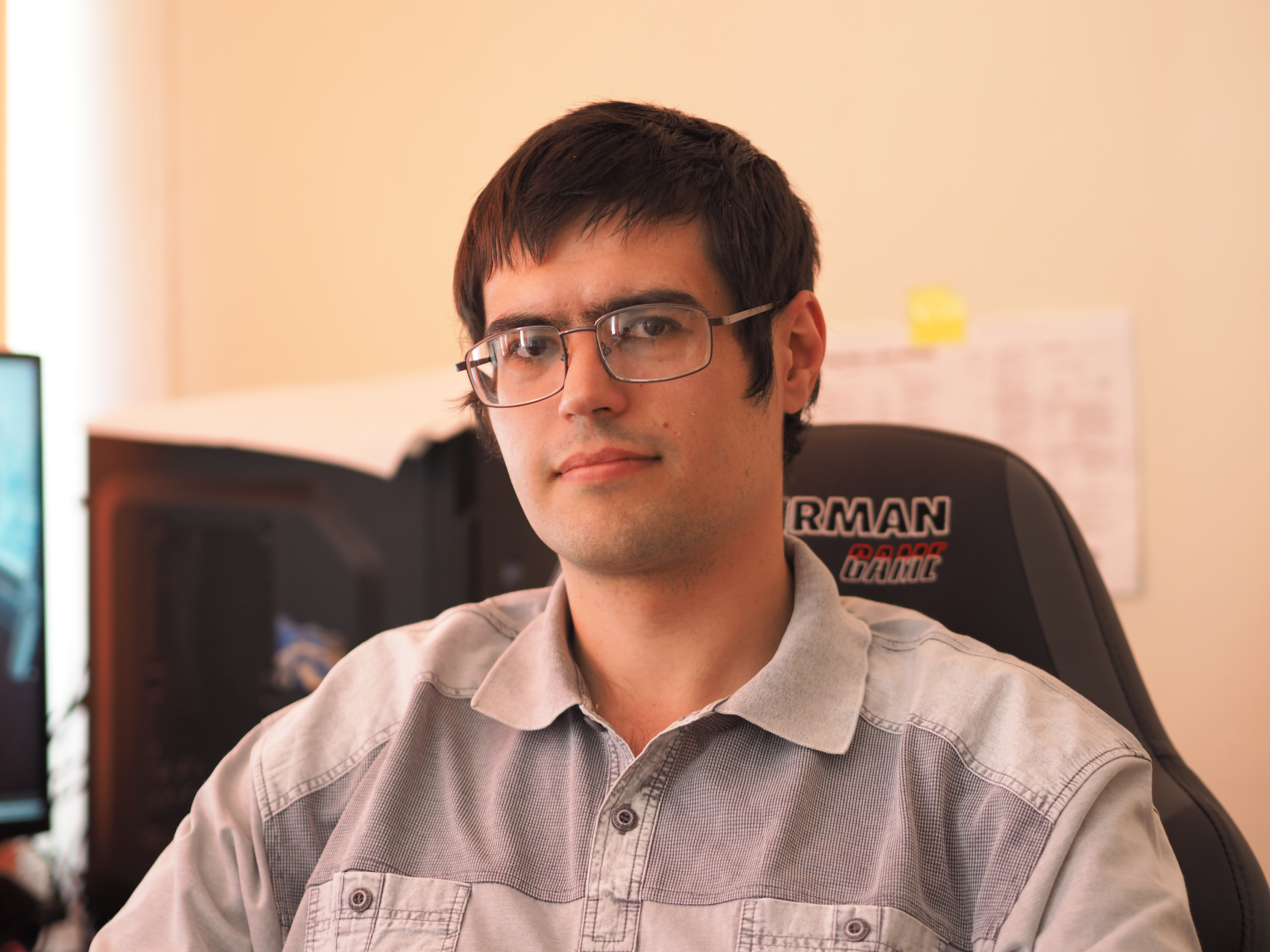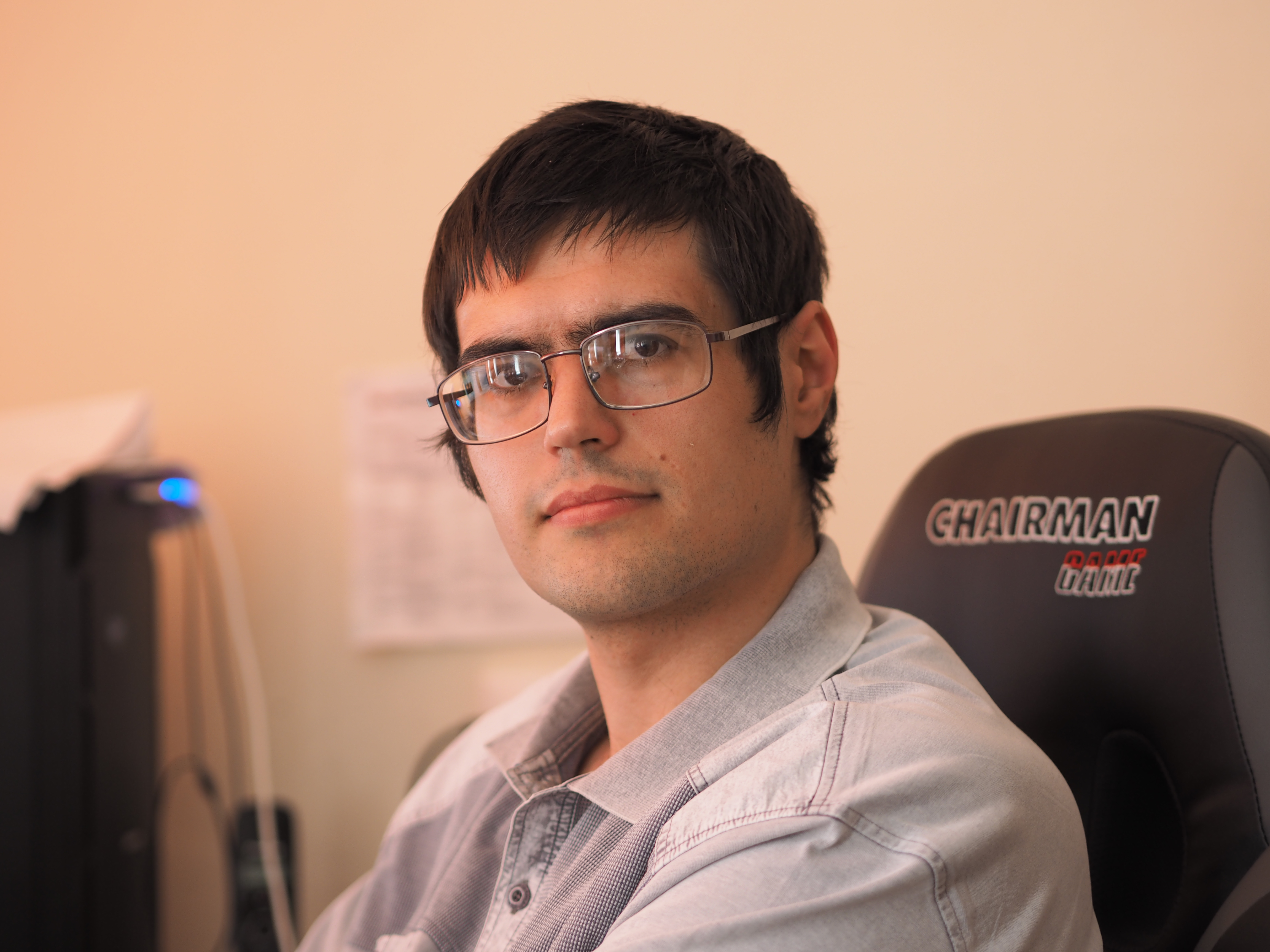Interview conducted in February 2022
Fedorov Nikita A. – PhD. in physics and mathematics, Junior researcher in the Sector of investigations of neutron-nuclear interactions, Division of Nuclear Physics.
My path to FLNP was winding. I first became interested in neutron physics when I was here at the AYSS-2015 conference (XIX International Scientific Conference of Young Scientists and Specialists). The report of the participants from the Neutron Activation Analysis Sector on their research caught my attention. At that time, I was in my final year of my bachelor's degree and I was looking for a new research topic. Thus, after the conference, I began looking for ways to cooperate with this or a similar group. So, I got a job at the Institute for Nuclear Research of the Russian Academy of Sciences and worked there for about a year. In the summer of 2016, I participated in the JINR Summer Student Program and ended up here – in the Laboratory of Neutron Physics. I got lucky, and I was hired by Yuri N. Kopach in the Department of Nuclear Physics. Earlier, at INR, I took part in the development of an activation analysis technique using photonuclear neutron source, but the new theme seems more interesting.
Now I am in my last year of postgraduate studies at the Physics Faculty of Moscow State University, Department of General Nuclear Physics. Our department has good connections with the Bogoliubov Laboratory of Theoretical Physics (BLTP) and Flerov Laboratory of Nuclear Reactions (FLNR), and my supervisor worked here, at FLNP. I am going to defend my thesis in autumn. My work is devoted to the study of inelastic neutron scattering on the nuclei of magnesium, silicon, aluminum, and iron. Since our group is small, we have to be broad-based specialists: take part in experiment planning, and in setting up the equipment, and in conducting the experiment, and in data processing, etc. The main data processing tool we use is the ROOT package. It is a collection of C++ libraries, for which you need to write programs of varying complexity. Thus, like many other physicists, I am also a bit of a programmer. Any results obtained in modern experimental nuclear physics are achieved through the work of a team of scientists, each of whom contributes to a common big cause. My work is no exception to this rule, and the results included in my dissertation could not be obtained separately from the work of my entire group.
In our scientific activity, various tasks are often encountered that require small, but specific automation. Therefore, we develop and create some devices ourselves. For example, we have developed and assembled a manipulator for moving the detector and various samples in radiation-hazardous conditions. We also made a system for monitoring the level of liquid nitrogen that cools germanium detectors. The principle of operation of this system is very simple: the dewar, together with the detector, is installed on an electronic weighing machine that transmits information to the server via a local network. The development of electronics for such small projects is not difficult and brings some additional variety to our work.
I believe young scientists and specialists should undoubtedly go to FLNP. Firstly, there is a friendly and qualified team that will find an interesting task for anyone. Secondly, of all the organizations I know (such as Skobeltsyn Institute of Nuclear Physics, Lomonosov Moscow State University or Institute for Nuclear Research), the financial conditions are the best here. Good service housing is provided, too. The Grill hotel (Dubna Hotel, building 3 - ed.), even before its renovation, was in much better condition than the dormitory of the main building of Moscow State University now. The only thing I regret is not entering the Physics Department of Moscow State University earlier, because for the first year I studied at the Faculty of Geography of Moscow State University. So, my path into physics turned out to be more difficult than it could have been.

